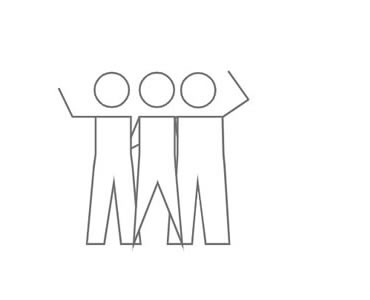One of the first actions we undertook on launch was to develop, with almost 40 stakeholders, a Theory of Change to guide the development of what we funded, how we would measure the impact of our funding and what sort of funder we wanted to be.

Theory of Change

For Spirit as a Funder our Theory of Change started with our primary assumption that events, like the London 2012 games, can inspire people to do more or different things, and explores the outcomes for the beneficiaries of our funding leading to our ultimate desired impacts:
We believe that enabling people to participate in a wide range of activities and engaging in their communities will:
- Improve the wellbeing of individuals, communities and society as a whole;
- Improve perceptions towards disability and impairment;
- Lead to greater social cohesion and understanding.
The Outcomes Pathways mapped the steps that we believed would lead projects to the ultimate impacts across:
- Inspiring events;
- Connecting Communities;
- Engaging volunteers;
- Overcoming Loneliness/Isolation;
- Empowering young people;
- Connecting Generations;
- Challenging Perceptions of Disability;
- Empowering Disabled People;
- Inclusive Participation.
Spirit’s grant funding projects were designed to test these outcome pathways to help us understand better what works in delivering long term change from the legacy of events. You can see how we did this in practice in the InFocus Evaluation Case Studies.
Underpinning the Theory of Change was an indicators framework that allowed us, and out partners, to develop Monitoring and Evaluation Frameworks to consistently test these outcome areas and aggregate impact across our funding. More can be found about our approach to Monitoring and Evaluation here.
As we move towards closure we have appointed three Legacy Learning Partners to explore Spirit’s evidence across the three impacts: wellbeing, perceptions of disability and social cohesion.

Thrive
Individuals and communities thrive irrespective of their background


Flourish
We contribute to a society set up in a way that enables everyone to flourish



